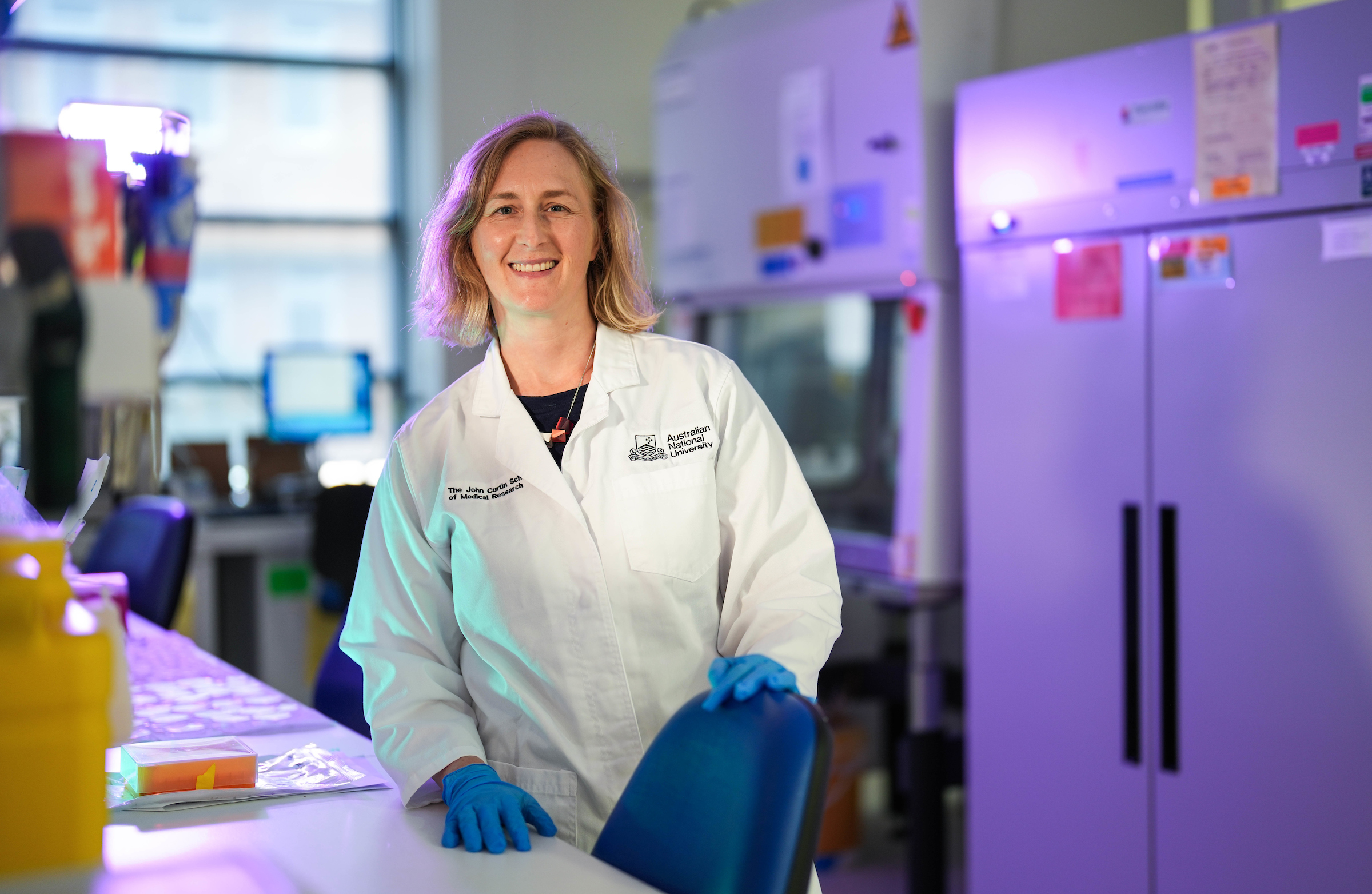JCSMR collaborates to establish new Centre of Research Excellence for Nucleic Acid Sensing

Dr Julia Ellyard in the lab at JCSMR. (Photo: Tracey Nearmy/ANU)
The John Curtin School of Medical Research (JCSMR) at the Australian National University (ANU) is partnering with the Hudson Institute of Medical Research in Melbourne to establish the new Centre of Research Excellence (CRE) for Nucleic Acid Sensing.
Based at the Hudson Institute, the CRE will lead research aimed at developing innovative treatment strategies for a range of auto-inflammatory diseases. Supported by the National Health and Medical Research Council (NHMRC), the centre will address crucial gaps in understanding nucleic acid sensing and its role in disease.
Our cells have sensors that recognise nucleic acids (DNA and RNA) from viruses and are essential in our immune system protecting us from infection. However, if mutations occur these sensors can mistakenly recognise the body’s own DNA or RNA and it results inflammatory disease.
Dr Julia Ellyard from JCSMR will be the sole ANU investigator, with her laboratory playing a pivotal role at the new Centre.
“We have developed mouse models that mirror the mutations found in patients with these autoimmune and autoinflammatory diseases. Through this Centre we now have the exciting opportunity to use these models to reveal how nucleic acid sensors operate and to test new therapeutics to treat disease.” said Dr Ellyard who heads the Autoimmunity and Cell Signalling Group at JCSMR.
The centre also collaborates with the University of Melbourne, Murdoch Children’s Research Institute, and the Royal Children’s Hospital.
